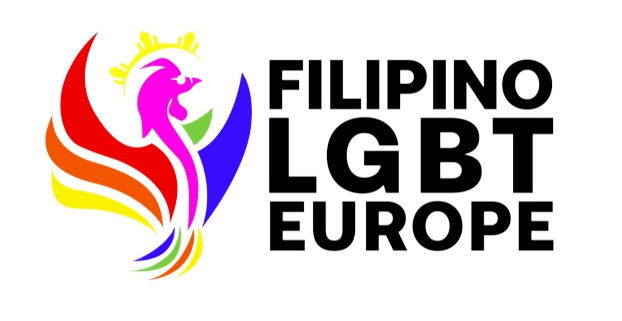
ANBI / CHARITABLE STATUS
ANBI STATUS (charitable status)
On 23rd of May 2018, Stichting Filipino LGBT Europe submitted its application to the Dutch Tax Office for Public Benefit Organization of Charitable Organization (Dutch: ANBI) for consideration. This means that you may deduct your donations to Stichting Filipino LGBT Europe from your income tax return if you meet the conditions of the tax authorities. You may read more about this via this link: visit Belastingdienst
Stichting Filipino LGBT Europe’s ANBI registration number is RSIN 858580883.
You may verify this information via this link: visit Belastingdienst
CREATION
The foundation Stichting Filipino LGBT Europe has been established by notarial deed on 8th March 2018. The foundation is registered in the Commercial Register of the Chamber of Commerce (Kamer van Koophandel Amsterdam) with registration number 71104224.
Dutch Tax Authorities (Belastingdiesnt) for ANBI status (Rechtspersonen en Samenwerkingsverbanden Informatienummer): RSIN 858580883
CONTACT
The Foundation is registered at this address: Kloveniersburgwal 9-HS, 1011 JT Amsterdam. To visit, please make an appointment with Chris Sta Brigida. You may telephone him at +31 6 55 84 84 65 and or send an email to info@FilipinoLGBT.eu.
OBJECTIVES
The Filipino LGBT Europe Foundation aims to (1) create a space in which the Filipino-LGBTs in various European countries can assert their visibility and voice so that they can become active members and citizens of the society they now inhabit and (2) to stimulate collaborative reflections, discussions and actions among the Filipino-LGBTs in Europe on issues that have bearings, directly or otherwise, to the emancipation of homosexuals and the normalisation of homosexuality in the Philippines, and to pursue other goals that are related and befitting to the objectives stipulated by the foundation.
CURRENT POLICY IN MAIN
The foundation shall accomplish her objectives through the following means:
1. Through organizing various activities and events such as publicly organized dialogues, conferences, symposia, and other cultural activities that will address the issues that directly or indirectly affect the lives of (1) the Filipino-LGBT in various European countries and (2) the LGBT communities in the Philippines;
2. By stimulating the production of knowledge on same-sex sexualities and building up the images of those who are in same-sex relationships both in the context of the Philippines and the Filipino communities in various European countries by means of research, education, and discourse;
3. By serving as intermediary between on the one hand the members of the Filipino-LGBT communities in various European nations and on the other hand governments, organizations and other institutions;
4. By raising funds and subsidies that will help the realization and fulfilment of the objectives the foundation has stipulated;
5. By embarking on long-term projects and campaigns that are socially relevant both in the Philippines and in Europe.
HOW DO WE OPERATE
Filipino LGBT Europe was established, run and managed by Filipino LGBTQIA migrants togerher with their partners and allies.
As a registered foundation in the Netherlands we follow a notarised set of guidelines which is supervised by the board of diretors for implementation and instructions.
The Committees are the main arm that handles the administration of the foundation and responsible for handling membership concerns and issues. The Committees comes up with a list of projects, which is then discussed with the board of directors. The board of directors is the decision-making body of the foundation. It is composed of predominantly LGBTQIA+ board members. Out of five members, four are LGBTQIA+ and one ally. Together, they serve as an advicsory board to ensure that the projects and activities align with the foundation’s principles and advocacies.
Should there be budget requirements, the resolution will then be submitted to the board of directors for approval.
MANAGEMENT
Article 4 of the Statute of the Foundation states the following:
1. The foundation has a board consisting of at least two members. The number of members is determined by the board unanimously, with due observance of the provisions of the previous sentence.
2. The board elects a chairman, a secretary and a treasurer from among its members. The functions of secretary and treasurer may also be filled by one person.
3. A board member is appointed for a period of three years. Retiring board members can be reappointed twice consecutively. A board member appointed in the interim takes the place of his predecessor on the roster.
4. In the event of one (or more) vacancy(s) on the board, the remaining board members will fill it unanimously within two months after the vacancy(s) arose by appointing one (or more) successors.
5. If, for whatever reason, one or more members are missing from the board, the remaining board members, or the sole remaining board member nevertheless forms a legal board.
6. The members of the board receive no remuneration for their work. They are, however, entitled to reimbursement of the costs incurred by them in the performance of their duties.
BOARD MEETINGS AND BOARD DECISIONS
Article 5 of the Statute of the Foundation states the following:
1. The board meetings are held in Amsterdam, unless the board decides otherwise.
2. At least one meeting is held each calendar quarter.
3. Meetings will also be held if the chairman deems this desirable or if one of the other board members submits a request to that effect to the chairman in writing, stating the items to be discussed in detail. If the chairman does not comply with such a request, in such a way that the meeting can be held within three weeks of the request, the applicant is authorized to convene a meeting himself, with due observance of the required formalities.
4. Subject to the provisions of paragraph 3, the convocation to the meeting is made by the chairman at least seven days in advance, not counting the day of the convocation and that of the meeting, by means of convocation letters.
5. The convocation letters state, in addition to the place and time of the meeting, the subjects to be discussed.
6. As long as all board members in office are present at a board meeting, valid resolutions can be taken on all subjects to be discussed, provided that they are unanimous, even if the regulations for convening and holding meetings given by the articles of association are not in force. taken into account.
7. The meetings are chaired by the chairman of the board. In his absence, the meeting itself appoints its chairman.
8. Minutes are kept of the business transacted in the meetings by the secretary or by one of the other attendees, so requested by the chairman. The minutes are adopted and signed by those who acted as chairman and secretary in the meeting.
9. The board can only take valid decisions at the meeting if the majority of the members in office are present or represented at the meeting. A board member can be represented at a meeting by a fellow board member on presentation of a written power of attorney, which is sufficient at the discretion of the chairman of the meeting. A board member can only act as an authorized representative for one fellow board member.
10. The board can also take decisions outside a meeting, provided that all board members have been given the opportunity to express their opinion electronically or in writing or in a legible and reproducible manner. The secretary will draw up a report of a decision thus taken, together with the answers received, which will be added to the minutes after countersignature by the chairman.
11. Each board member has the right to cast one vote. Insofar as these articles of association do not prescribe a larger majority, all board resolutions are passed by an absolute majority of the valid votes cast.
12. All votes at the meeting are taken orally, unless the chairman deems a written vote desirable or one of the persons entitled to vote so requests before the vote. Written voting takes place by unsigned, closed ballots.
13. Blank votes are considered not to have been cast.
14. The chairman of the meeting decides in all disputes regarding voting.
BOARD OF DIRECTORS
Article 6 of the Statute of the Foundation states that the board is charged with managing the foundation. The board is authorized to decide to enter into agreements, to purchase, alienate or encumber registered property. The board is not authorized to decide to enter into agreements in which the foundation commits itself as surety or joint and several co-debtor, acts for a third party or commits itself to provide security for a debt of a third party.
REPRESENTATION
Article 7 of the by-laws states that the board represents the foundation in and out of court. The power of representation also belongs to two board members acting jointly.
END OF BOARD MEMBERSHIP
Article 8 of the Statute of the Foundation states that Board membership ends:
a. due to the death of a board member;
b. in the event of loss of free management by a member of the board of his assets;
c. in the event of written resignation (to say thank you);
d. by retiring periodically;
e. in the event of dismissal pursuant to Article 298, paragraph 2 of the Dutch Civil Code; or f. in the event of dismissal by the board on the basis of a unanimous decision of all other board members, without any vacancy on the board.
BOARD OF DIRECTORS COMPOSITION
Article 4 of the Statute of the Foundation states that the board shall consist of at least two members. The board shall elect a chariman, a secretary and a tresurer from among its members. The secretary and treasurer can be the same person.
The current composition of the board is as follows:
- Chairman: Chris Sta Brigida
- Secretary: Ryan Aquino
- Treasurer: Kristian Albert Lee
4. Board Member: Chei Billedo
5. Boad Member: Aris Ibarando
REMUNERATION POLICY
Article 4 section 6 of the Statue of the Foundation states that members of the board receive no remuneration for their work. Board members may receive reimbursement of expenses on a basis by submitting proper documents. Volunteers, to prior approval of the Board, may also receive remuneration for expenses incurred on a reimbursement basis by submitting proper documents.
POWERS & FUNDINGS
Article 3 of the Statue of the Foundation states that the assets of the foundation will be formed by: a. grants and donations; b. gifts, heirlooms and legacies; c. all other acquisitions and income. Institutions can only be accepted under the privilege of inventory.
The Committee for Finance is the main department that handles the administration in raising funds and subsidies that will help the realization and fulfilment of the objectives the foundation has stipulated.
ANNUAL FINANCIAL REPORTS
To view our Financial Reports, please kindly visit this LINK
